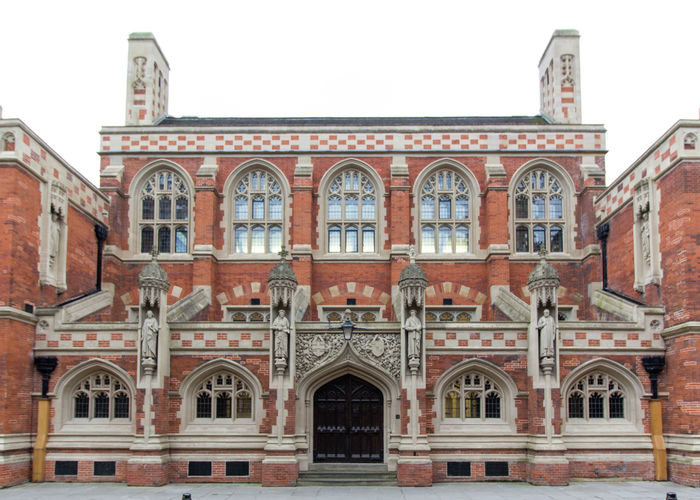The right way of approaching ‘the wrong side of history’
Daniel Starkey discusses what it means to be ‘on the wrong side of history’ and why people’s concerns should be treated more seriously in public debate

Content note: this article includes discussions of sexual abuse
Our public sphere is built on deciding what is and isn’t acceptable to say publicly. This helps us make it more inclusive and tolerant. But passing judgement on the legitimacy of views also has a more problematic side. Views which come from a place of concern or anxiety are sometimes deemed illegitimate. Sure, they may sound prejudiced and incompatible with progressive values. But how would this treatment look to the people voicing such views?
Let us imagine that someone is worried about the effects of immigration on their town or village. Maybe they feel anxious about how their community looks and feels different because of it. The basis for their views isn’t prejudice but concern, and they want an answer to these concerns. Even if the way these concerns are expressed seems intolerant or xenophobic to us, they nevertheless matter to the people who express them.
“Marginalising and pushing views we don’t like out of mainstream discourse is only likely to entrench them further”
To denounce such views as illegitimate is no help. While it may feel right to marginalise views that are potentially upsetting and exclusionary, this doesn’t tackle the root of the problem: people want reassurance in the face of anxiety. Giving people the impression of hostility is only going to deepen frustration, and make them see the other side as unreasonable.
We’ve seen this happen in the UK. The vote for Brexit was, in large part, a manifestation of frustration from those feeling ‘left behind’ and ‘ignored’, feeling that they’d finally been given a chance to express this. One article from a few days after the vote claimed that the vote was ‘fuelled by irrational xenophobia, not real economic grievances’. It draws an interesting dichotomy; economic grievances are apparently ‘real’, whereas xenophobia (which, in this context, I interpret to mean concerns about immigration and cultural difference) is ‘irrational’. Concerns like this are also ‘real’, however. It’s about perception: we might think they’re ‘irrational’, but such concerns most likely seem real in people’s minds.
“People need to be included and listened to, not least if their views come from a place of concern”
Another example is the recent outcry against the feminist group ‘Woman’s Place UK’ during a meeting in Manchester in March. As I heard from someone who attended the meeting, women recounting suffering terrible sexual abuse, and speaking in favour of single-sex spaces (from the perspective of biological sex) were accused of being part of a transphobic ‘hate meeting’ by protestors. Again, while many would agree that things said at the meeting were exclusionary, such a response is not one that’s going to endear more ‘progressive’ movements to those in the group, not least when they have genuine concerns fuelled by lived experience. It sends a message of intolerance, while paying little regard to the reasons people have for expressing their views.
It might sound like I’m writing in defence of “free speech” here. And while it’s definitely an important thing, propagating the lofty ideal of “free speech” isn’t enough. We also need to listen to people and be understanding of where their views come from, rather than dismissing them as “irrational”. If we don’t listen to people and accept their views as legitimate, they’ll most likely just turn to other like-minded people who will — made all the more easy by online platforms. Marginalising and pushing views we don’t like out of mainstream discourse is only likely to entrench them further. It’s counterproductive to progressive aims to address them this way.
This treatment reminds me a lot of the phrase “on the wrong side of history”. In many ways, it’s as if in delegitimising views, they’re being dumped onto this “wrong side”, because they clearly don’t fit with how “history” is meant to play out. That implies that we can just forget about them; the train of history ploughs on whether they’re on board or not. I think this perspective, at least in part, shapes the idea that we should simply push away views we disagree with: “Our way is the future, whether the other side likes it or not, so they don’t matter”.
But, as a Guardian article from a few years ago put it, it’s a fallacy to think that history is mapped out this way. If enough people are alienated, and a backlash big enough is caused, something altogether different may come about. It might be challenging and discomforting, but people need to be included and listened to, not least if their views come from a place of concern. Especially if we are to truly advance progressive causes. Otherwise, history may turn out to have ideas of its own.
 Features / Cambridge: where toxic productivity turns rest into a radical act8 April 2025
Features / Cambridge: where toxic productivity turns rest into a radical act8 April 2025 News / Rowing row continues as Oxford and Cambridge scrap women’s trial race9 April 2025
News / Rowing row continues as Oxford and Cambridge scrap women’s trial race9 April 2025 News / Under 3% of applicants for Cambridge academic jobs are successful7 April 2025
News / Under 3% of applicants for Cambridge academic jobs are successful7 April 2025 News / Uni to ‘review’ tripos rankings and weekend lectures in undergrad teaching overhaul10 April 2025
News / Uni to ‘review’ tripos rankings and weekend lectures in undergrad teaching overhaul10 April 2025 Comment / Death of the June Event?9 April 2025
Comment / Death of the June Event?9 April 2025





